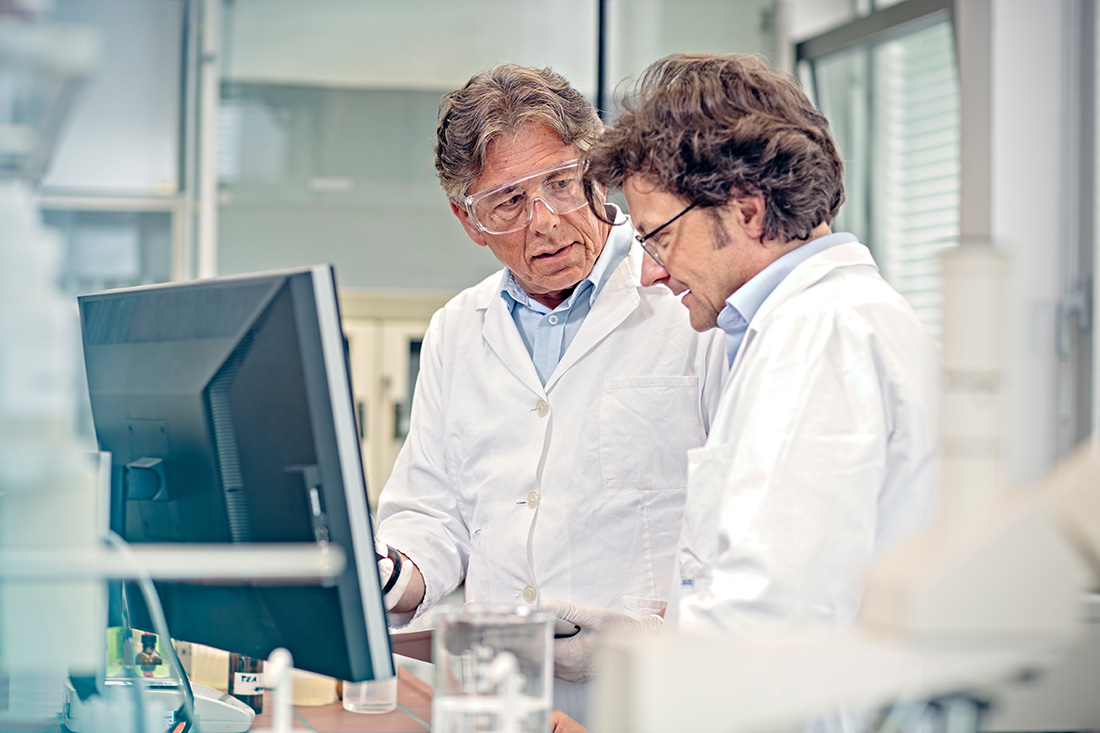Travel restrictions speeded up the adoption of remote inspections

The travel restrictions caused by the COVID-19-pandemic challenged Fimea to make rapid changes to the inspections carried out as part of the supervision of operators.
Some of Fimea’s supervision sectors, such as supervision of the pharmaceutical industry, clinical trials, pharmaceutical wholesalers and hospital pharmacies, planned and carried out a rapid switch from on-site to remote inspections after the onset of the pandemic.
The planning of the remote inspection of pharmacies, on the other hand, had already been started much earlier. The actual development project began in the summer of 2019 when Inspector Päivi Luhtanen started to develop the remote inspection of pharmacies in her master’s thesis. As the COVID-19 pandemic stopped on-site inspections in the spring of 2020, the completion of the project was expedited, and remote pharmacy inspections were already commenced in the late summer.
In remote inspections, the pharmacist responds to an enquiry on which the inspection is based and submits other materials requested from them in advance to Fimea. Discussions with the pharmacist take place at agreed times over remote connections. The feedback received from pharmacists praised this form of inspection as being useful and, above all, effective.
In the supervision of pharmacies, remote inspections have become a permanent practice alongside on-site inspections when, based on the assessment carried out, the pharmacy concerned is deemed suitable for a remote inspection. Remote inspections mean added flexibility both for the inspectors and for the pharmacy owners. Cost savings are also be obtained when the travel time and travel and accommodation costs are eliminated.
Remote inspections of pharmaceutical manufacturing plants are based on a risk assessment
In normal conditions, the inspections of pharmaceutical manufacturing plants are carried out on-site. The COVID-19 pandemic also changed the normal inspection practices of pharmaceutical manufacturing plants, shifting the focus to remote or hybrid inspections, where the time spent on-site is kept as short as possible.
In the spring, the European Commission decided to allow certain flexibility in legislation during the pandemic to ensure better availability of medicinal products while still continuing to supervise the pharmaceutical industry during the pandemic. One of the actions is the automatic extension of the validity of GMP certificates until the end of 2021. At the same time, the regulatory inspection of pharmaceutical manufacturing plants on a remote basis to an extent larger than before was also made possible.
The selection and scheduling of the remote inspection targets are based on a risk assessment, as are inspection operations in other regards as well. In the risk assessment, the EU inspector supervising the plant assesses, among other things, how critical the medicinal products produced by the plant are for the EEA, how complex the plant's production operations are, and what the plant’s history with regard to quality problems is like. Based on the risk assessment, a decision is made on whether the inspection is to be carried out on a remote basis or on-site.
While the pandemic made it necessary for the authorities to switch to remote inspections, the adoption of remote inspections with regard to pharmaceutical manufacturing plants had already been considered at Fimea. However, in the future, remote inspections would call for a unified position from the European medicinal authorities. For the time being, the remote inspection of pharmaceutical manufacturing plants is limited to the duration of the pandemic.
National and international cooperation between authorities
The pandemic posed a challenge to the implementation of the inspection activities of medicinal authorities around the world. The remote inspections of pharmaceutical manufacturing plants were also raised as one of the topics addressed at the global PIC/S (Pharmaceutical Inspection Convention and Pharmaceutical Inspection Cooperation Scheme) seminar for GMP inspectors held in October. In the seminar, updates on the global situation of remote inspections, their benefits and development targets, were heard.
The responsibility for hosting the seminar was switched to Fimea on an exceptionally short notice following the original host’s withdrawal from its hosting responsibilities due to the corona pandemic. The first virtual meeting in the seminar's history was attended by 379 inspectors from 49 countries.
In November, remote inspections were also discussed nationally in a cross-sectoral workshop for authorities, which was attended by 60 supervisory experts from the Finnish Medicines Agency, the Radiation and Nuclear Safety Authority, the Finnish Safety and Chemicals Agency, and the National Supervisory Authority for Welfare and Health. Arranged in the form of small-group discussions, the workshops discussed, among other things, good practices and challenges well as technology and data security related to remote inspections.